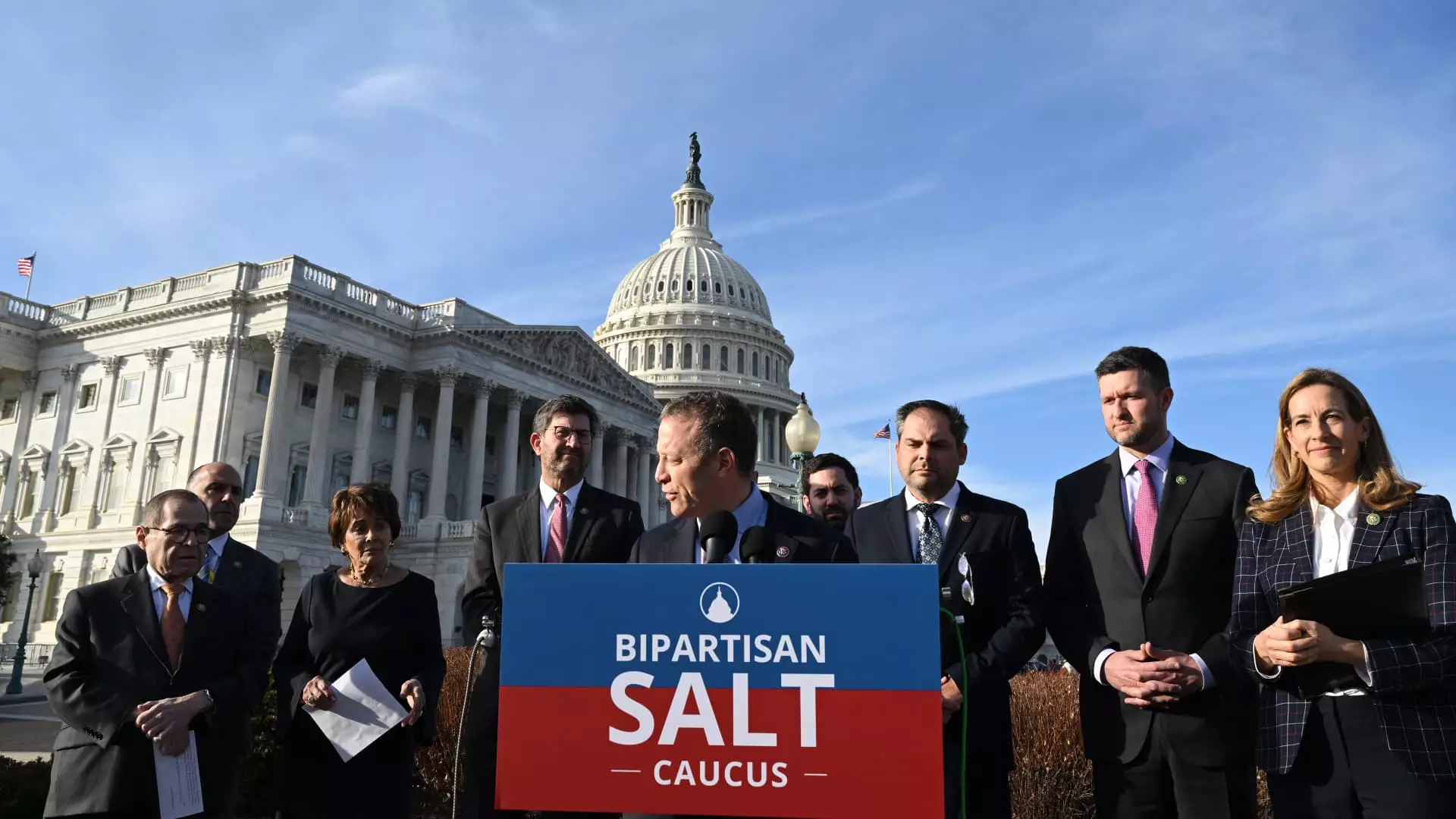In the ongoing dialogues surrounding tax reforms, the state and local tax (SALT) deduction limit, which caps at $10,000, stands out as a controversial topic. This cap, instituted by the Tax Cuts and Jobs Act (TCJA) of 2017 under then-President Donald Trump, was originally intended to stabilize the economy by providing tax relief. However, rather than serving its purpose universally, it appears to benefit the affluent disproportionately while squeezing middle and lower-income citizens. Congressional actions—or the lack thereof—dictate whether this provision will remain in place beyond its sunset in 2025.
As debates intensify, one cannot help but notice a trend: lawmakers from affluent states are increasingly vocal about raising this cap. We see representatives from California, New Jersey, and New York clamoring for relief, pushing back against a policy that has become more burdensome for their constituents. This situation raises eyebrows, especially when considered in the context of the wider economic spectrum. Are we to prioritize the tax concerns of a wealthy few at the expense of the many?
Echoes of Campaign Promises
Interestingly, Trump, who once championed the SALT cap, has performed a complete pivot on the issue since returning to office. His campaign rhetoric suggests a desire to “get SALT back,” indicating a promise to reinstate or relieve the cap—something that clearly benefits wealthier taxpayers. As he calls for reform, the inherent hypocrisy in these statements cannot be ignored. For a leader who proclaimed the TCJA a success, the sudden urgency to amend a key feature raises questions about genuine intent versus political necessity.
Moreover, with a razor-thin Republican majority in the House, the voices of those well-off constituents have begun to resonate louder. The complexities of tying the SALT reform to other concurrent negotiations showcases the political theater at play, suggesting that, once again, the voices of the affluent drown out the concerns of everyday Americans.
The Disproportionate Benefits for the Wealthy
A deeper look into the implications of raising the SALT cap reveals a troubling narrative. Reports indicate that if the cap is increased, the affluent—particularly those earning over $200,000 annually—would reap the lion’s share of benefits. Under proposed amendments, married couples filing jointly could see an increase in their cap from $10,000 to $20,000, which would further entrench existing disparities in the tax code. Critics argue this method of taxation is eerily reminiscent of our history, where tax provisions were designed to cater to the wealthy, leaving the rest to fend for themselves.
Interestingly, while approximately 90% of tax filers are currently using the standard deduction—thanks to its doubled value under the TCJA—this situation has done little to uplift fringed communities. A system where those making under $200,000 are left out of substantial tax breaks does not bode well for a fair and equitable economy. This situation raises pressing questions: Why are our tax systems crafted to reward affluence while ignoring the pressing needs of those on the lower economic rungs?
The Geographical Divide and Its Impact
The SALT cap’s effects are not uniform across the country. An exhaustive analysis reveals that most of the congressional districts adversely affected by the SALT limitation are located in states that already juggle high taxation rates. Notably, nearly 40 out of the 50 districts most impacted by the cap are situated in California, Illinois, New Jersey, or New York. The geography of tax justice raises an essential inquiry—are we upholding equitable policies at the federal level? Or are we reinforcing existing inequalities across socio-economic lines?
Higher earners, particularly those in urban metropolitan areas with soaring property taxes and incomes, stand to gain if the cap is amended. Conversely, citizens struggling in lower-income brackets face an uphill battle as the very framework meant to promote fairness often prioritizes wealth. Tax structures should ideally help distribute resources more fairly, not perpetuate cycles of wealth accumulation for the privileged.
In the paradox of tax reform, the discussions shaped in Washington are laden with potential outcomes that favor the rich while leaving average Americans grappling with ever-increasing financial pressures. The call for a reconsideration of SALT caps poses profound challenges regarding equity and representation in our spending and taxation policies. As the debate continues, the collective voice of the disenfranchised must not be lost in the cacophony of political maneuvering.

